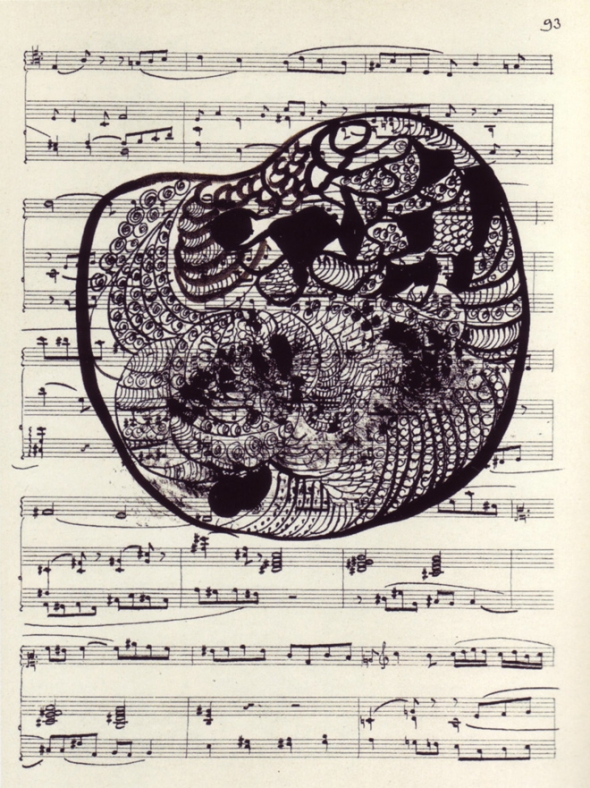Call for Submissions for Cesura//Acceso Journal
Cesura // Acceso
Music That Never Surrenders:
Journal for Music and Experimental Politics
What is Cesura?
Cesura//Acceso is a twice-yearly ‘diy’ non-academic journal that aims to bring together writings on music and autonomist related politics. Our point of departure is the aim to ignite, develop and sustain dialogue and discourse (which seems to be missing or hidden) between contemporary music and spaces of political thought and action.
Cesura//Acceso will wrestle experimental music from the clammy fist of dogmatism, and reveal/produce proximate practices of experimental politics.
Cesura//Acceso is active and is learning.
In brief, Cesura//Acceso will be a mixture of original material and archival material, republishing texts that relate to the concerns of the journal and relevance to particular issues. It is a journal for creative writing: experimentation with form and content that energises readability and resists the inert coffee-table artifact.
//
If you are interested
We are trying to get an idea of who might be able and interested in contributing material to the first issue of Cesura//Acceso.
As a rough guide, It is imagined at this stage that contributions will be up to and around 8000 words or 20 (A5) pages - but it is hoped that the journal will be formed around the particularities of the content - so we are keen not to normalise contribution formats and will happily accommodate unorthodox submissions, including short pieces. If you are interested and have something you want to submit - let us know. We are at cesura[at]riseup.net
Submission Timeframe
Once contribution is confirmed, you would have 3 months to submit material.
//
Who is involved with Cesura?
Cesura//Acceso is a not-for-profit project by Gabriel Humberstone and Paul Abbott, working alongside a few sympathetic supporting contributors, for no money, to try and make the journal a reality. We do not have any funding. We are mostly based in London. Initially, the Journal will be designed by Gabriel Humberstone and Paul Abbott.
//
Content
As a commitment to the future of the journal, and to offer a concrete point of departure for interested contributors, we have proposed example initial thematic/conceptual frameworks for contributions. These are some potential, initial frameworks: Workers enquiry related to music, historical political writings on music, anthropological accounts of musical movements and their political implications, theoretical articulations of musical being, practices of musical learning, Interviews, writing on specific musicians and musics, writing by musicians on their practice and aesthetic theory related to music. These are by no means an exhaustive summary but work as pointers. After the first issue the plan is to have a few pieces existing within a larger, more varied collection that would be specifically focused on a particular problem/idea.
Cesura Issue 1
The first issue will not have a specific theme but will aim to introduce the areas of inquiry that we will be pursuing in future editions.
Cesura Issue 2
Theme: Mud Slices, Gape Protocol
Focus: Music and Anti-know
Cesura Issue 3
Theme: Sticky Tics, Unclocked Territory
Focus: Accelerationist aesthetics and music
//
Form/Production/Distribution
Size
A5, 100 pages
Print/Production
Physical:
Perfect bound, Softback, 1 Color (black+white)
Initial print run: 500
Digital/Download:
PDF/Epub
Each copy of the journal will come with a download code for a collection of music or sound work related to the issue. This adjunct material will act as a bridge between textual/theoretical content and related music.
Distribution
To begin with physical copies of the journal will be distributed to sympathetic/interested venues within the UK: (independent bookshops/music venues/art galleries/libraries/self-run spaces and conferences).
Elsewhere the journal will be freely available as a PDF published online on a dedicated website and shared via social media networks etc.
Each Issue will be distributed first as a physical publication, and then made available online, after one month.
//
Economics
Production Cost
To be confirmed.
Purchasing Cost
The printed journal will be made available as cheaply as possible after printing costs. A digital version will be available for free.
Contributor Fee
Money received from sales of the journal will be used as follows:
First, to cover the cost of print-production, and basic web hosting costs.
Secondly, the remainder will be distributed equally to contributors.
At this stage, we cannot therefore offer a fee in advance.
Design
Print design/layout/typeset/web-design are all being done free-of-charge.
contact:
cesura[at]riseup.net
@cesura_acceso
Mute Books Orders
For Mute Books distribution contact Anagram Books
contact@anagrambooks.com
For online purchases visit anagrambooks.com







